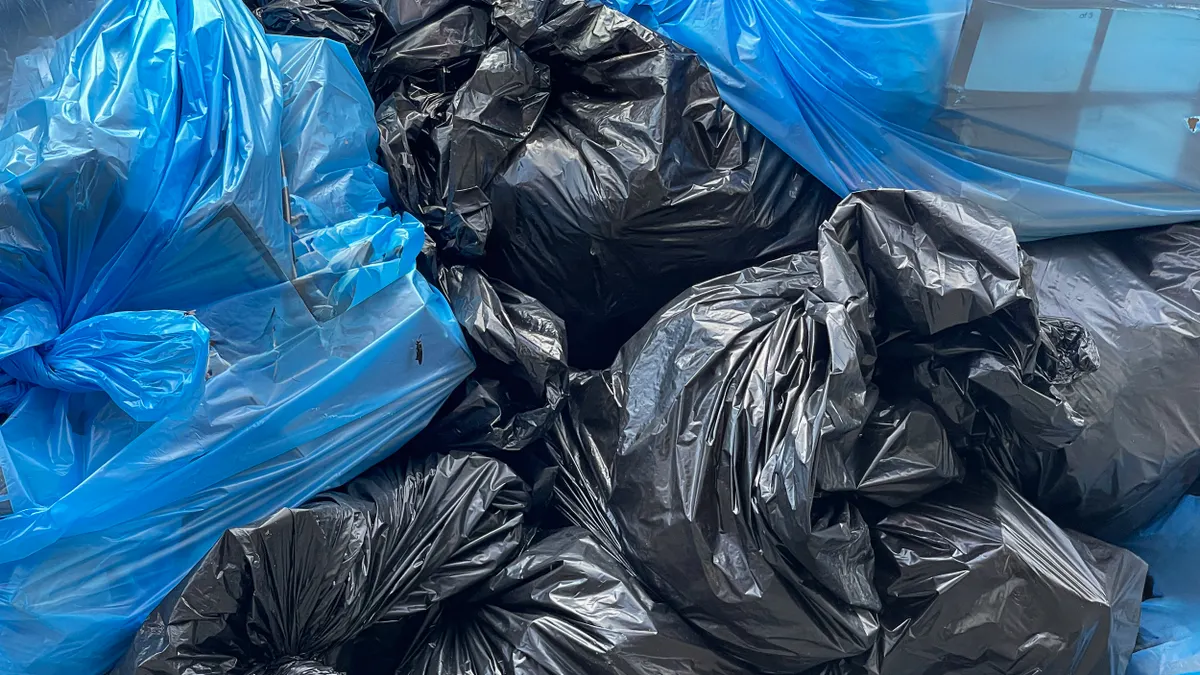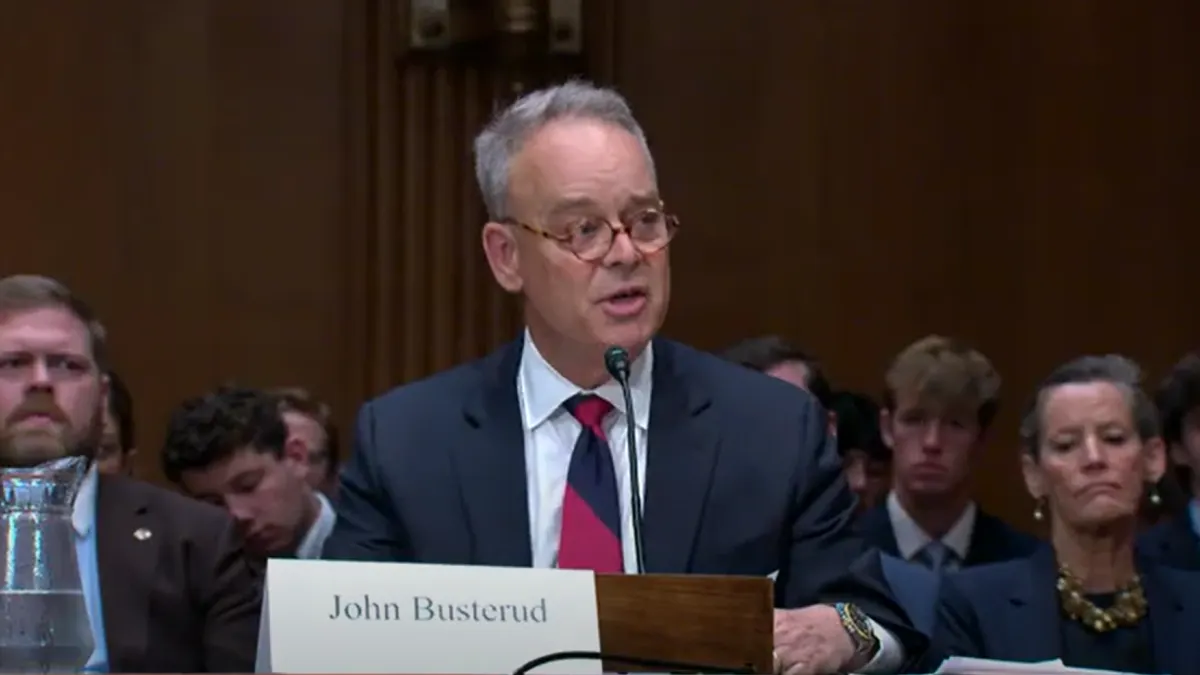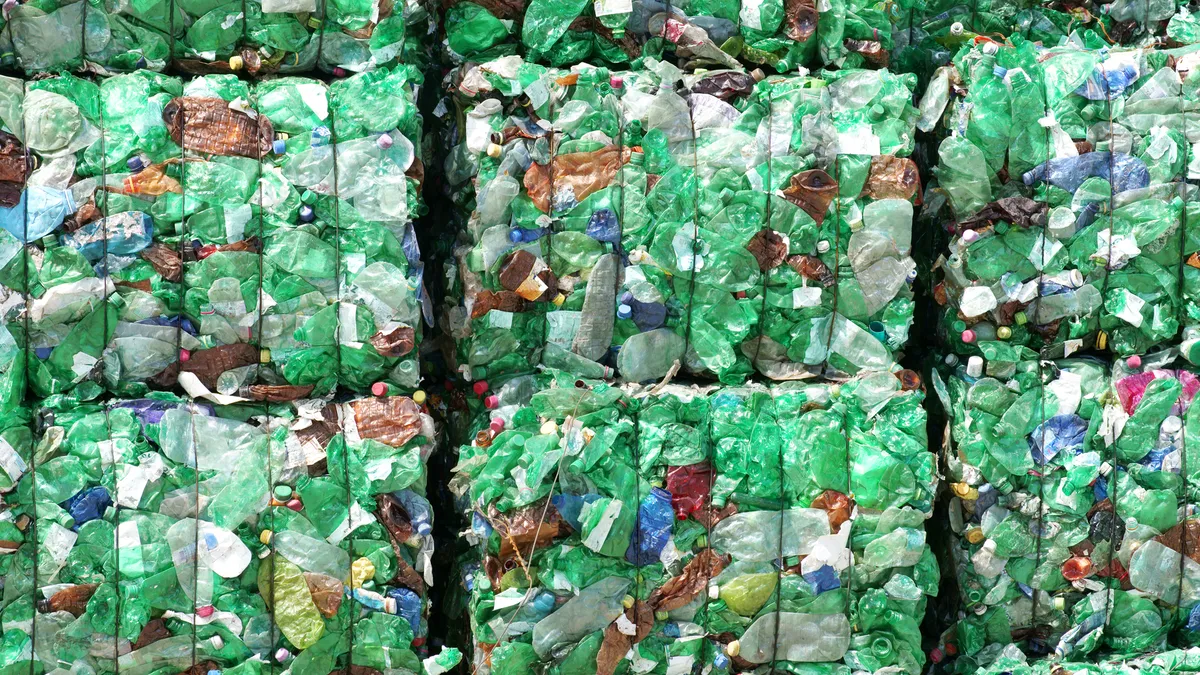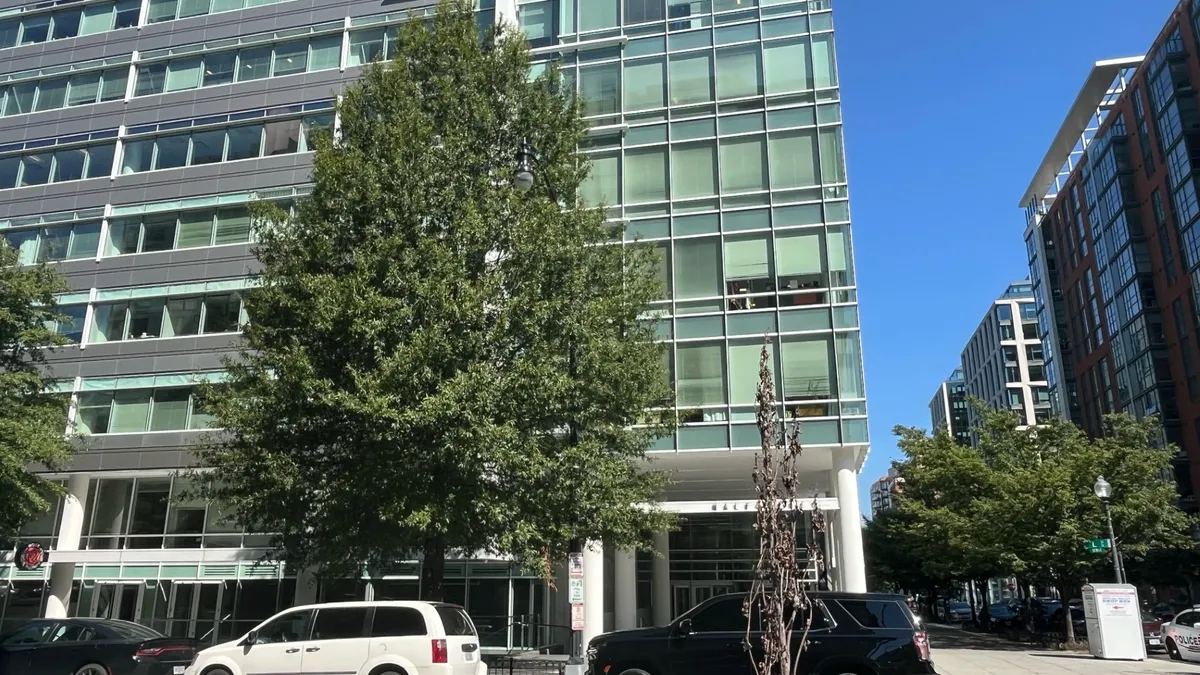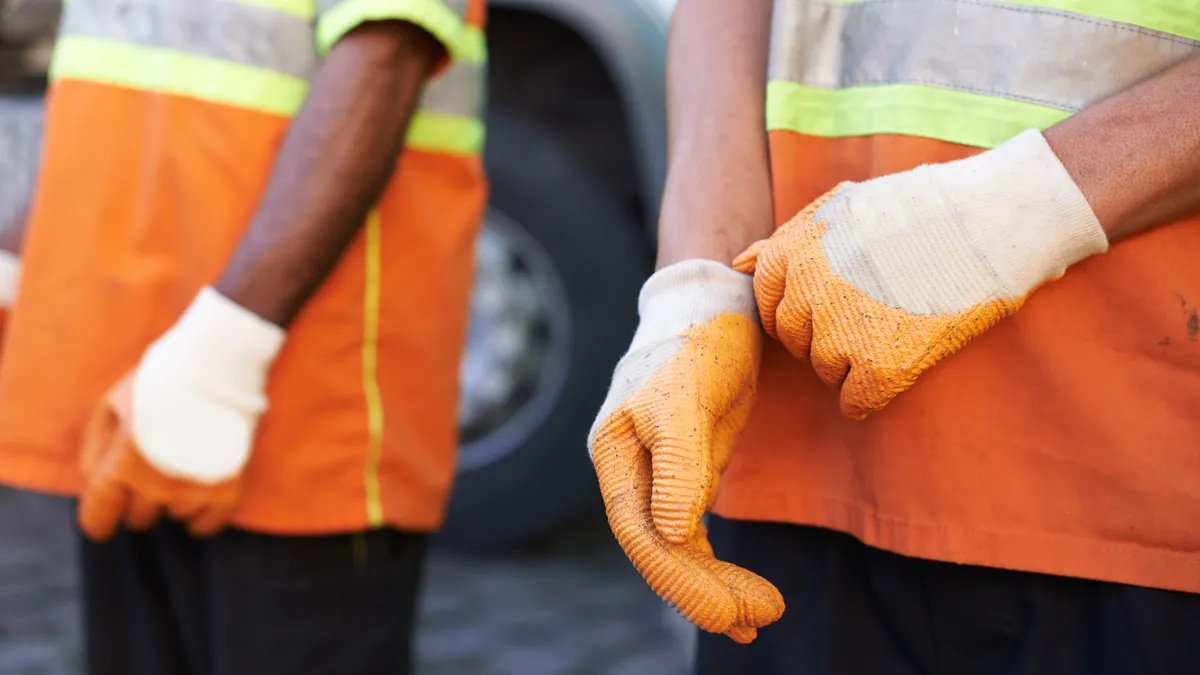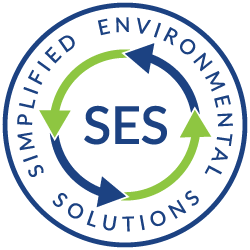San Francisco is often touted as a poster child for waste reduction. In 2009 it became the first U.S. city to adopt mandatory recycling and composting. But when it comes to compliance, this bright green city has a dark side: apartment buildings.
“Out of all the sectors, multifamily struggles the most with contamination,” said Freddy Coronado, residential zero waste specialist for the San Francisco Environment Department. Multifamily properties account for many of the city’s large refuse generators — buildings that produce at least 40 cubic yards or more of uncompacted refuse per week. And upwards of 75% of them fail waste-stream audits that the city performs, according to Coronado.
The audits are required as part of the city’s Refuse Separation Ordinance, which it enacted in 2019. The RSO covers roughly 450 buildings, including 150 multifamily dwellings, which generate 20% of San Francisco’s waste stream.
Properties that fail an audit must hire a service provider to perform onsite sortation for at least two years. The city offers training to these providers, called zero waste facilitators, to ensure they sort properly. These organizations take that role very seriously by ripping open every trash bag to pull out recyclable and organic waste. That’s because the city has strict contamination thresholds: up to 25% in the waste stream, 10% for recycling and 5% for organics.
While many municipalities don’t have these types of rules, there’s still a growing demand for onsite sortation and other high-touch waste handling services at multifamily properties across the country. These companies help improve recycling and organics diversion, address persistent illegal dumping and even collect waste from residents’ doorsteps in a service known as trash valet.
Trash valet is the second most-requested amenity in the multifamily sector right now (behind pet infrastructure, like play areas and waste stations), said Kevin Schwartz, senior director of governmental affairs for Valet Living.
Schwartz said the company collects trash, recycling (and in some markets, organics) from more than six million residents, usually five nights per week. The company is increasingly providing onsite sortation, sometimes separately from doorstep collection, in California, Oregon and Washington, as well as cities with organics diversion requirements like Austin, Texas, and Gainesville, Florida.
Providers are looking to offer more of these types of services to multifamily clients, as indicated by Ally Waste’s recent acquisition of California-based WasteXperts, which has provided multifamily recycling and diversion services for decades.
“A few years ago, we were just a pure play valet trash company,” said Ally Waste COO Harrison Crum. “That's a very niche service only for multifamily. And what we realized is that properties have a lot more trash issues than just getting trash from doorstep to dumpster.”
The business model
In 2012, Lainika Johnson joined Republic Services as a sales representative in Sacramento, California. She knew nothing about the waste industry, but that quickly changed.
“I asked if I could move my desk to the window so I could watch the transfer station floor,” she said. “That was fascinating to me … but to other people, they were probably like, ‘okay, you're a little crazy about trash.’”
Johnson’s interests eventually moved upstream as she fielded more and more questions from commercial customers about California’s recycling and organics regulations, and concerns about how to handle illegal dumping on their properties. She took a sales role with Valet Living, and eventually decided to branch out on her own, founding TrashLogic in 2016.
Today, TrashLogic provides waste handling and sortation services to commercial and multifamily properties. Its first step, Johnson explained, is generally to look over a client’s recent hauler charges and observe residents’ behaviors to see what they toss, where and how often.
“It's about redesigning the whole system of waste, not just coming in and saying, ‘oh, we can clean up your [waste] enclosures,’” she said.
Instead, TrashLogic determines whether the property has too many bins or dumpsters, or if they’re poorly placed. Some might be overly full and others not maximized. By changing how the waste and recycling collection areas are designed, Johnson said, TrashLogic can often lower properties’ hauling costs and reduce overage fees and contamination penalties that some haulers charge.
“We charge for our service and our service costs. Usually the [client’s] savings covers most of our cost,” she said.
Miyon Mael, chief growth officer at WasteXperts, noted that service adjustments can be very effective in areas with high hauler fees, like Los Angeles.
“Even though you may have overage charges or overflowing containers, it doesn't necessarily mean that those materials are being placed in the right containers. So with boots on the ground we can actually divert that material, place them in the right containers and we could definitely drive down some trash costs,” said Mael.
Trash valet services are often billed directly to tenants. A quick survey of rates from various companies in the San Francisco area show that fees range from $20 to $40 per month, per unit. Outside of valet services, Mael said that some properties are able to bill back costs of waste collection to tenants, in municipalities that consider it a utility.
Large apartment buildings in urban areas often collect waste centrally, generally using trash chutes. Newer construction or renovated properties sometimes have up to three chutes for different materials — or a retrofitted chute that allows residents to direct waste to different bins using integrated diverters. But the diverters can be difficult for residents to use and are prone to clogging, said Coronado.
Mael said WasteXperts provides green compostable bags for food waste and instructs residents to send them down trash chutes. Even if the waste streams are commingled, she said, the bags are easy to divert. “Because it is a translucent bag, we can easily identify if there's contamination [mixed in with the organics],” she said.
Coronado noted that many large buildings in San Francisco have had to remove trash compactors in order to reduce contamination by making it easier for sorters to access refuse. And new apartment buildings in the city are now required to install three separate trash chutes.
Staying on top of bulk items in less dense complexes with large parking lots is key, Johnson said. Waste can add up once a location becomes known as a dumping site and sometimes people who don’t live at the apartment complex dump there, too.
“We see a lot of TVs, we see a lot of furniture and we see a lot of car parts,” explained Aaron Lee, a waste flow technician supervisor at TrashLogic.
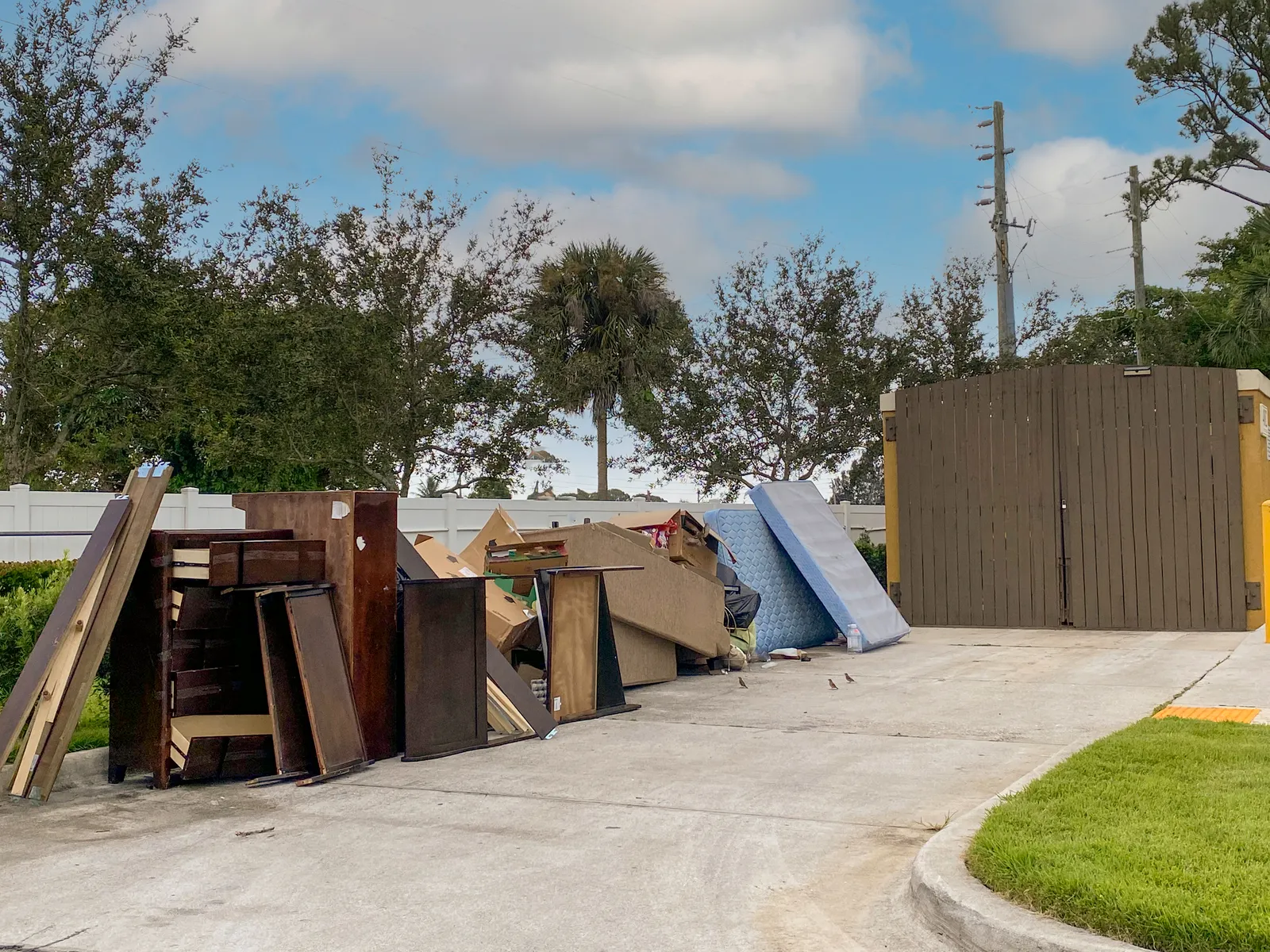
Changing behavior
Improving multifamily recycling is an ongoing challenge, and one that experts say requires ongoing education and engagement.
Mael said part of the problem is a lack of accountability in large communities, since it can be very difficult to tie high rates of contamination to particular residents.
“Tenants move in and move [out], and there are language barriers, cultural barriers,” to proper sorting and reducing contamination, said Coronado.
San Francisco is trying different approaches to improve compliance, from door-to-door outreach, to holding educational meetings for residents with refreshments. But, ultimately, the steep penalties and requirements to hire zero waste facilitators is what really moves the needle for property managers.
In San Francisco multifamily buildings face two different financial incentives to remain in compliance with the city’s diversion requirements and to avoid contamination.
If a property fails a waste stream audit, it must create and share a compliance plan with the city, which includes hiring a zero waste facilitator. Failing to do so within four months triggers an administrative penalty of $500 per day for up to 60 days, and the fees increase from there.
The buildings are also subject to contamination fees based on inspections from the city’s franchise hauler, Recology. Those fees can be up to 50% of the property’s bill, which can easily add hundreds or thousands of dollars, each month. Coronado said the potential for these steep fines has resulted in a high compliance rate among properties that fail audits, and that the city has not yet charged administrative or contamination fees to multifamily properties.
While artificial intelligence and automation are gaining traction in many parts of the recycling system, the companies that provide manual sortation don’t see demand for their services decreasing any time soon. Miyon Mael, Aaron Lee and Kevin Schwartz all agreed that it won’t be a concern until robots are able to climb stairs, drive trucks, jump into dumpsters and deftly sort all manner of trash.


